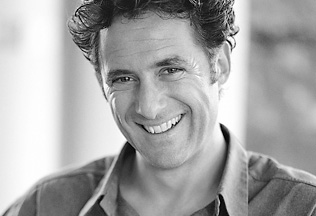Sign up for our e-newsletter and receive our article explaining the 4 key intelligences of leadership.
Note: We never divulge your email address.
Deep Change defines spirituality as the innate need to be connected to something larger than ourselves - something which we define as sacred or of great nobility. The famous psychologist Abraham Maslow studied what made people healthy and fully "actualized." He said in his final book, Farther Reaches of Human Nature, that "Man has a higher and transcendent nature, and this is part of his essence." (p. 337) and that "Man is a hierarchy of needs, with the biological needs at the base of the hierarchy and the spiritual needs at the top." (p. 186)
The desire to connect to the Intelligence that underlies the Universe is an innate need. The ways in which this need is satisfied vary. One way is through religion. For a great many people, religion is a wonderful way to develop their spiritualy. But religion is only one way to express spirituality . . . just as English is only one way to communicate words.
We believe that all human beings are born "spiritual" - but not spiritually intelligent. Intelligences are skills that have to be developed over time. Spiritual intelligence is the development of certain skills. These skills are related to the ability to act with wisdom and compassion while maintaining inner and outer peace (equanimity), regardless of the circumstances. Spiritual Intelligences is an innate human capacity that is made available to us if we are willing to develop it.
Unless you are in one of our Introduction to World Religions classes religion only comes up peripherally. Participants in our classes will never be required to discuss their religious affiliations or beliefs. Our focus is on spirituality, which we see as the “umbrella” under which all major faith traditions exist. In no way will we ever attempt to convert anyone to any faith’s belief system.
As Jim Collins details in his book Good to Great (Harper Collins, 2001), key characteristics of visionary companies and exceptional leaders include: consistent focus on vision and values, ability to embrace paradox, and humility. These characteristics are directly related to spirituality. Hence, as individuals (at all levels of the organization) develop greater personal spiritual intelligence, they experience increased personal satisfaction, improved job performance, and become more effective team players and leaders. All of these enhancements improve the bottom-line. Spiritual Intelligence skills are also strongly positively correlated with higher stages of adult development - which is itself highly correlated with leadership capacity. The ability to hold multiple perspectives and to develop systems thinking are related to the ability to relax the ego and hold a wider view - a Spiritual Intelligence skill set.

“Do not follow where the path may lead. Go instead where there is no path and leave a trail.”
Ralph Waldo Emerson

Customized for you, we pull together the assessments that are most relevant for your role and business situation. A proprietary approach blends the results to create empowering insights.